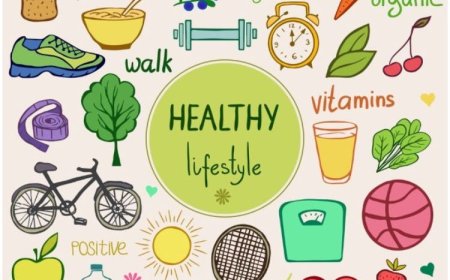The Role of Calories in Exercise: Fueling Your Workouts
Introduction Calories play a vital role in fueling your workouts and supporting your fitness goals. Whether you're a seasoned athlete or a casual exerciser, understanding how calories impact your performance and recovery can help you optimize your diet and exercise routine. In this blog, we'll explore the relationship between calories and exercise, including how to fuel your workouts and manage your caloric intake for optimal results.

The Basics of Exercise and Calorie Burning
Exercise increases your energy expenditure, which means you burn more calories. The number of calories burned during exercise depends on various factors, including the type, intensity, and duration of the activity, as well as your body weight and fitness level.
1. Types of Exercise
Different types of exercise burn different amounts of calories. Aerobic activities like running, cycling, and swimming tend to burn more calories than anaerobic activities like weightlifting and resistance training.
2. Intensity and Duration
Higher intensity and longer duration workouts burn more calories. For example, running at a fast pace burns more calories per minute than walking.
3. Body Weight
Heavier individuals tend to burn more calories during exercise because they expend more energy to move their body.
Fueling Your Workouts
Proper nutrition is essential for fueling your workouts and supporting recovery. Here are some key points to consider:
1. Pre-Workout Nutrition
Eating the right foods before exercise can enhance performance and prevent fatigue. Aim for a balanced meal containing carbohydrates, proteins, and healthy fats 2-3 hours before your workout. If you're short on time, a small snack like a banana or a handful of nuts 30-60 minutes before exercise can also be beneficial.
2. During Workout Nutrition
For most workouts lasting less than an hour, water is sufficient for hydration. However, for longer or more intense sessions, consider consuming easily digestible carbohydrates like sports drinks, gels, or fruit to maintain energy levels.
3. Post-Workout Nutrition
Recovery nutrition helps replenish glycogen stores, repair muscle tissue, and reduce muscle soreness. Aim for a meal or snack containing carbohydrates and proteins within 30-60 minutes after exercise. Examples include a smoothie with protein powder, Greek yogurt with fruit, or a turkey sandwich on whole-grain bread.
Managing Caloric Intake for Fitness Goals
Your fitness goals will influence how you manage your caloric intake:
1. Weight Loss
To lose weight, you need to create a calorie deficit by consuming fewer calories than you burn. Combine a balanced, nutrient-dense diet with regular exercise to achieve sustainable weight loss.
2. Muscle Gain
To build muscle, you need to consume more calories than you burn, with an emphasis on protein to support muscle repair and growth. Focus on strength training exercises and include protein-rich foods in your diet.
3. Maintenance
To maintain your current weight, balance your caloric intake with your energy expenditure. Eat a varied diet that includes all macronutrients and stay active to support overall health.
Tips for Optimizing Exercise and Caloric Intake
1. Listen to Your Body
Pay attention to your hunger and energy levels. Eating when you're hungry and stopping when you're full can help you maintain a healthy balance.
2. Stay Hydrated
Proper hydration is crucial for optimal performance and recovery. Drink water throughout the day and during your workouts.
3. Plan Your Meals
Plan your meals and snacks around your workout schedule to ensure you have the energy you need for exercise and recovery.
4. Monitor Progress
Track your workouts and nutrition to see what works best for your body. Adjust your calorie intake and exercise routine as needed to meet your goals.
Conclusion
Calories are essential for fueling your workouts and supporting your fitness goals. By understanding the relationship between calories and exercise, you can optimize your diet and training regimen for better performance and results. Remember, a balanced approach to nutrition and exercise is key to achieving and maintaining a healthy lifestyle. Stay active, eat well, and enjoy the benefits of a fit and energized body.
What's Your Reaction?


























































































